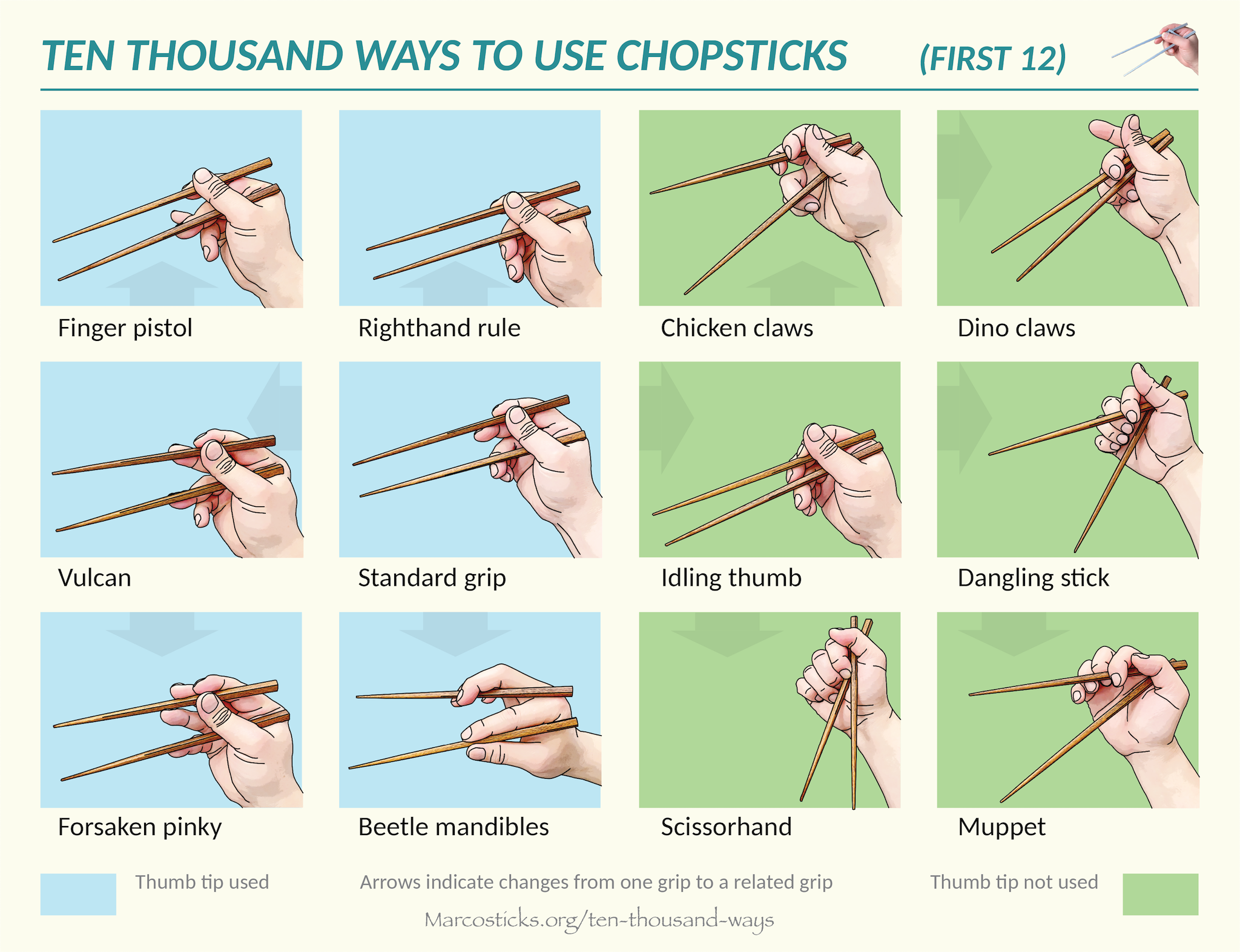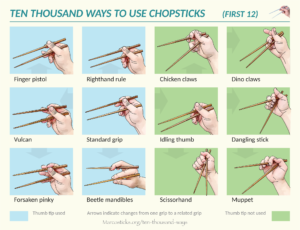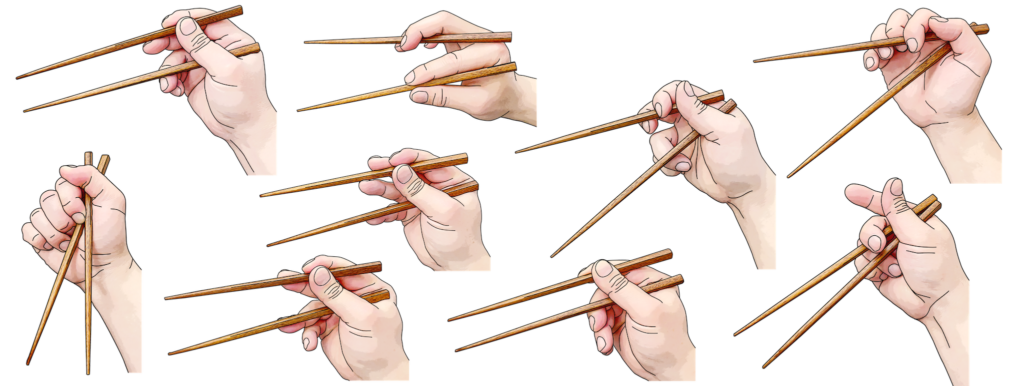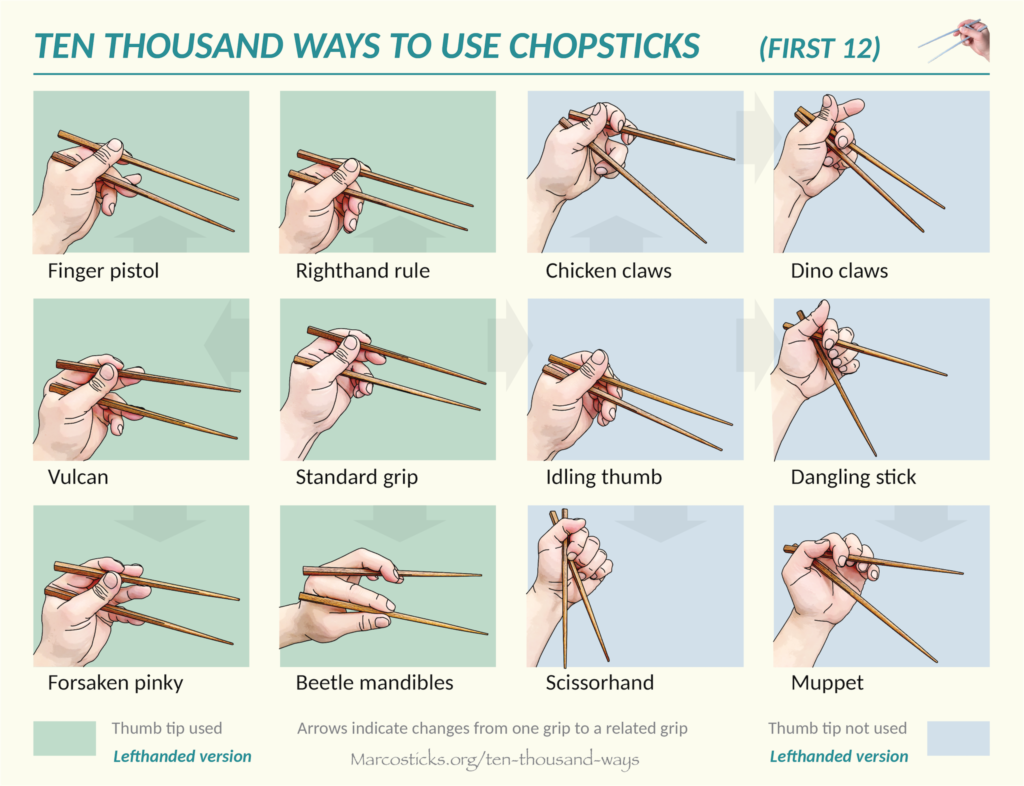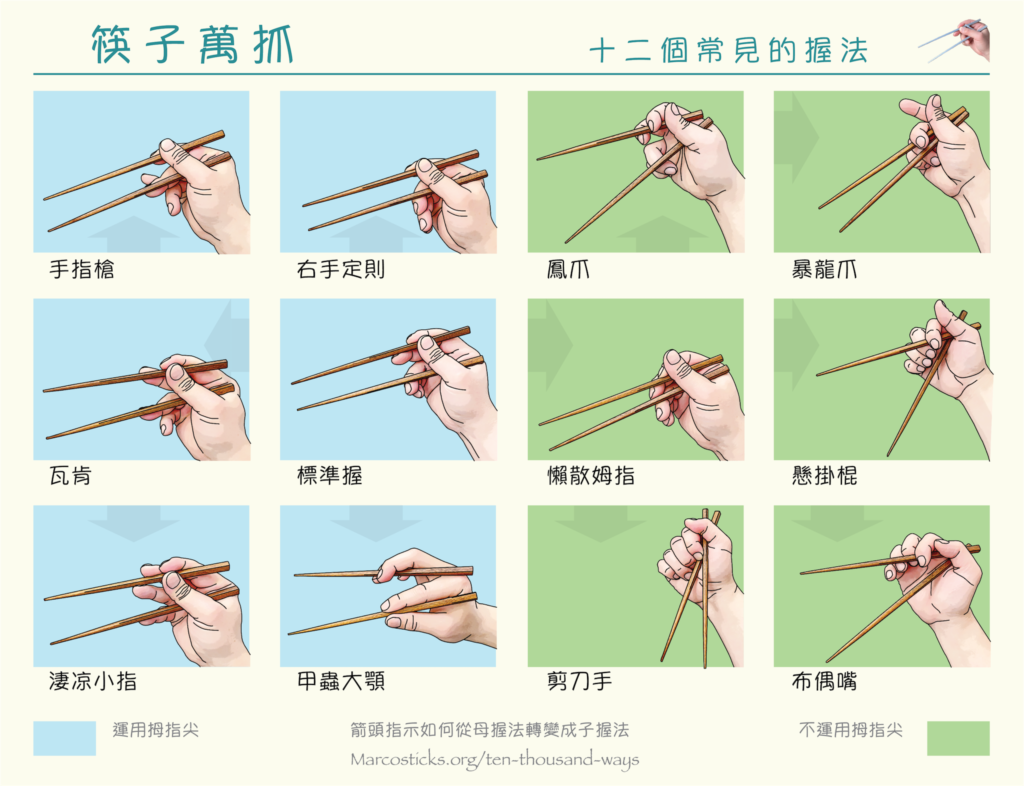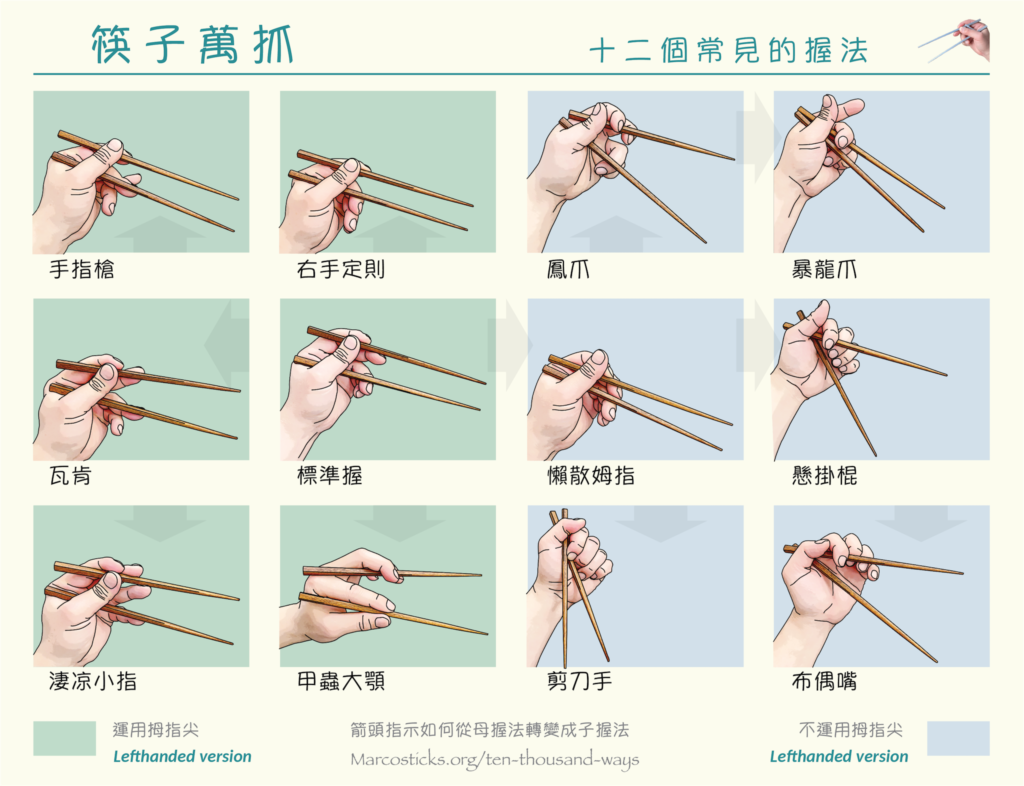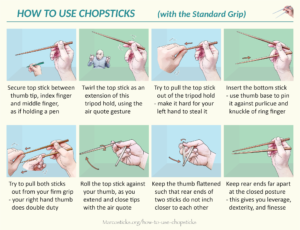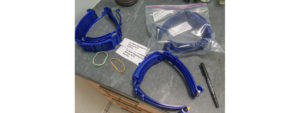Last Updated on 2021 年 06 月 18 日 by 編輯
We made a poster that summarizes in one single printable sheet, key insights we built by studying dozens of ways people grip and use chopsticks. We posted this picture on Reddit, and got 12,000 upvotes, plus a thousand comments in 4 hours. Click on the poster to see the poster in full resolution.
For those who must drill into the last bit of details, and learn everything there is to know about each and every grip type, click on the image below to go the article for nerds.
內容目錄
Intent of this poster
The intent of this poster is to illustrate the reality that both lifelong users and adult learners do end up using a variety of grips. After a few years of research into chopsticks, we no longer think of a “right” grip versus “wrong” grips. All grips work, if users are able to pick up food with them.
There is nothing wrong for using an alternative grip. There are objective differences in efficiencies between grips. But eating food is not a race. All grips are fine. We have since captured this view in our retrospective, The Art and Science of Chopsticking.
In addition, there is a sizable population who cannot wield the Caswellian thumb pose required by Standard Grip. They have little choice but to adopt an alternative grip, or use training marcosticks.
We encourage everyone to freely share this poster and every poster we make available, everywhere. They already show URLs linking back to articles which expand on the same topics. You do not need to provide additional attributions. Go ahead, and share these image files.
How to read this poster
We picked 12 out of 16 grips we’ve analyzed and published for this picture. By trial and error, we found that using the criteria “is the thumb tip used to move the top stick” allowed us to split the 12 grips into two even groups, colored blue on the left, and green on the right. In retrospect, we uncovered yet another useful factor for comparing grips. This was subsequently documented in Using vs not using the Thumb.
Arrows connect one grip to a related grip. You can in general observe one small change between two connected grips. You can think of it as one degree of separation in a graph.
If you take this graph, and anoint one arbitrary node as the root node, then you get a tree. In this case, we chose the Standard Grip as the root node. We could well have chosen the Idling Thumb. But Standard Grip is by far the most efficient grip, so there is that. The Family Tree of Alternative Grips goes into this tree relationship in more details.
Why ten thousand?
Many people commented on our use of “ten thousand”. Obviously there are not exactly ten thousand ways to use chopsticks. We know that. You can stop complaining about it.
Ten thousand in Chinese is a key unit, written as 萬, pronounced “wan”. Just like the word “myriad”, it is often used in place of “countless”. That is what we meant here.
But some people think that counting ten thousand grips has something to do with Arthur C. Clarke’s Nine Billion Names of God. We do encourage such school of thought, as well.
